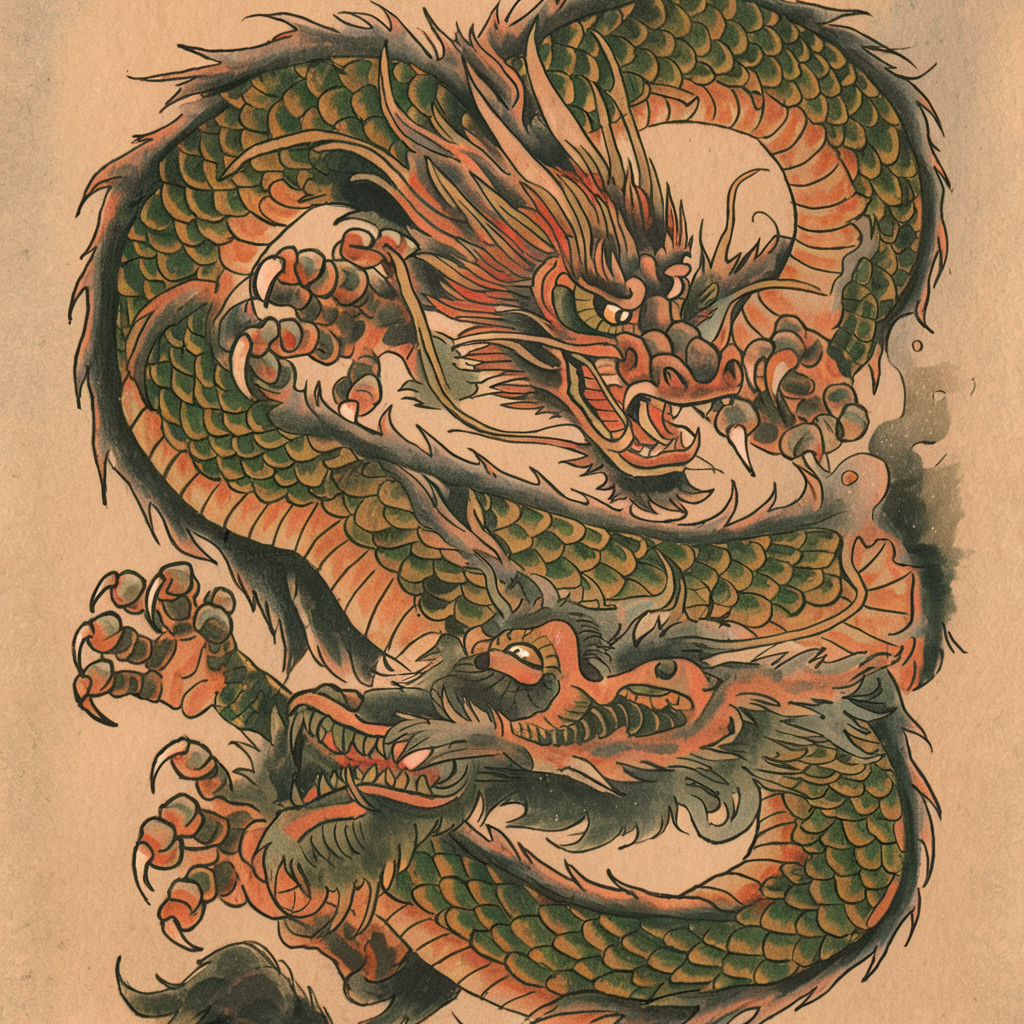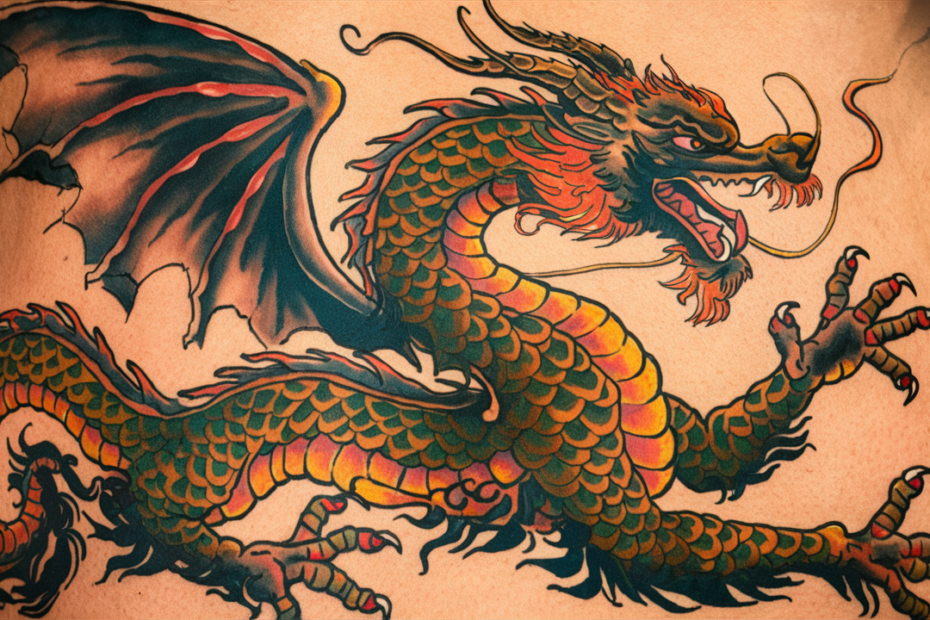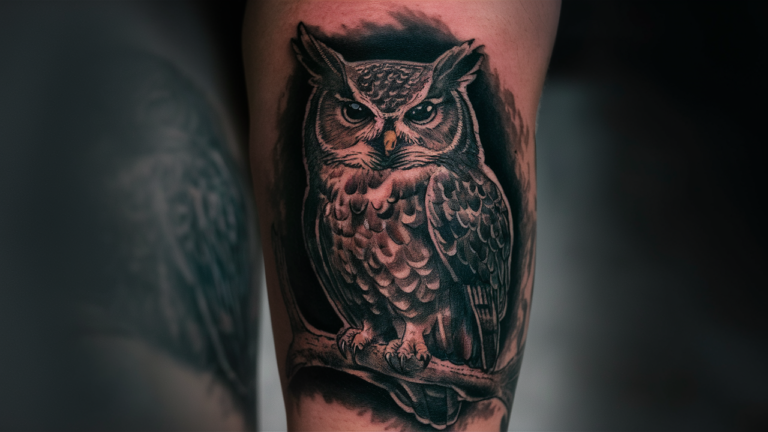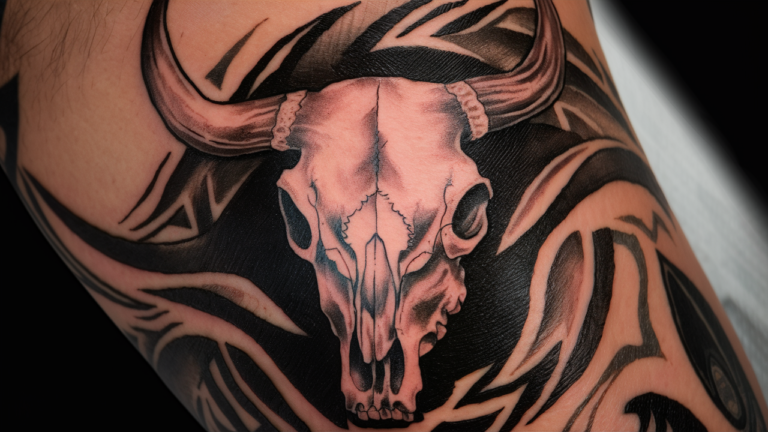Introduction
Dragon tattoos have always fascinated tattoo enthusiasts worldwide. These mythical creatures not only look stunning when inked but also carry deep, significant meanings that vary across different cultures. Whether you’re drawn to the power, wisdom, or mystery they represent, dragon tattoos are a timeless choice that holds a unique allure.
The Mythological Origins of Dragons
Dragons in Eastern Mythology
Chinese Dragon Symbolism
In Chinese mythology, dragons are revered as powerful and benevolent beings. Unlike their Western counterparts, Chinese dragons are often seen as symbols of good fortune, strength, and protection. They are associated with water, capable of controlling rainfall and ensuring prosperous harvests. Emperors of ancient China even claimed dragons as their mythical ancestors, emphasizing their significance in Chinese culture.
Japanese Dragon Symbolism
Japanese dragons, known as “Ryu” or “Tatsu,” share similarities with Chinese dragons but have distinct attributes. They are often depicted with three toes and are linked to the sea. Japanese dragons symbolize power, wisdom, and success. They are also believed to be protective spirits that ward off evil and bring good luck.
Dragons in Western Mythology
European Dragon Myths
In Western mythology, dragons are often depicted as fearsome creatures to be vanquished by heroic figures. These dragons are usually associated with fire, destruction, and chaos. Stories of dragon slayers, such as Saint George, highlight the theme of good triumphing over evil.
Dragon Slayers and Heroes
The tales of dragon slayers are prevalent in Western lore. These heroes, armed with courage and strength, battle formidable dragons to protect their lands and people. The dragon in these stories often symbolizes a formidable challenge that the hero must overcome, representing inner demons or societal issues.
Cultural Significance of Dragon Tattoos
Eastern Cultural Perspectives
Power and Wisdom
In Eastern cultures, dragon tattoos are seen as emblems of power and wisdom. They embody the virtues of courage, strength, and protection. People who choose dragon tattoos often seek to channel these attributes, drawing inspiration from the mythical beast’s legendary qualities.
Guardianship and Protection
Dragons in Eastern mythology are also viewed as guardians. They protect sacred places and are believed to watch over people, shielding them from harm. A dragon tattoo, therefore, can serve as a talisman for safety and protection.
Western Cultural Perspectives
Strength and Courage
In the West, dragon tattoos symbolize strength and courage. The dragon, a formidable adversary, represents a challenge to be overcome. Getting a dragon tattoo can be a personal declaration of one’s inner strength and bravery in the face of life’s difficulties.
Mystery and Magic
Western dragons are also associated with mystery and magic. They are often depicted hoarding treasure or possessing magical abilities. A dragon tattoo can symbolize a fascination with the unknown and a connection to the mystical elements of life.
Dragon Tattoo Designs and Their Meanings

Traditional Dragon Tattoos
Traditional dragon tattoos often feature intricate designs with bold lines and vivid colors. These tattoos stay true to the cultural depictions of dragons, capturing their essence and symbolism.
Modern Dragon Tattoo Variations
Modern interpretations of dragon tattoos offer more flexibility in design. They can be more abstract, incorporate other elements, or blend styles from different cultures, allowing for a unique and personalized tattoo.
Color Symbolism in Dragon Tattoos
- Red Dragons
Red dragons symbolize intense emotions like love, passion, and power. They are fierce, energetic, and dynamic, representing a person’s fiery nature and strong-willed character.
- Black Dragons
Black dragons often symbolize wisdom, experience, and dignity. They are associated with profound strength and are believed to possess knowledge and insight gained over time.
- Blue Dragons
Blue dragons represent calmness, stability, and depth. They are linked to the water element, symbolizing peace, tranquility, and a deep connection to one’s inner self.
Placement Ideas for Dragon Tattoos
Full-Body Dragon Tattoos
A full-body dragon tattoo can be a striking and dramatic choice. This placement allows for extensive detail and artistry, showcasing the dragon’s full form and majesty.
Sleeve Dragon Tattoos
Sleeve tattoos featuring dragons are popular for their ability to wrap around the arm, creating a dynamic and continuous design. This placement is perfect for those who want a prominent yet flexible tattoo.
Small and Subtle Dragon Tattoos
For those who prefer a more discreet tattoo, small and subtle dragon designs can be equally powerful. These tattoos can be placed on the wrist, ankle, or behind the ear, offering a personal touch without being overly conspicuous.
Popular Dragon Tattoo Styles
Traditional Japanese Irezumi
Irezumi is a traditional Japanese tattooing style that often includes dragons. These tattoos are highly detailed and usually cover large areas of the body, reflecting the cultural significance and artistry of Japanese tattooing.
Neo-Traditional
Neo-traditional dragon tattoos blend traditional elements with modern techniques. They feature bold outlines and vibrant colors, creating a visually striking design that honors the past while embracing contemporary aesthetics.
Tribal Dragon Tattoos
Tribal dragon tattoos are characterized by their bold, black lines and geometric patterns. These designs are rooted in ancient tribal art and often symbolize primal strength and spiritual connection.
Realistic Dragon Tattoos
Realistic dragon tattoos aim to depict dragons in a lifelike manner. These tattoos require a highly skilled artist to capture the intricate details and textures, resulting in a breathtaking and awe-inspiring piece of art.
The Process of Getting a Dragon Tattoo
Choosing the Right Tattoo Artist
Finding the right tattoo artist is crucial for a dragon tattoo. Look for an artist who specializes in the style you prefer and has a portfolio showcasing their expertise in dragon designs.
Tattoo Preparation Tips
Before getting your tattoo, ensure you are well-prepared. Stay hydrated, get a good night’s sleep, and avoid alcohol or blood-thinning medications. Discuss your design and placement with your artist to ensure clarity and satisfaction.
Aftercare for Dragon Tattoos
Proper aftercare is essential for a tattoo’s healing process. Follow your artist’s instructions, keep the tattoo clean, and avoid direct sunlight and soaking in water. Moisturize regularly to keep the skin hydrated and the tattoo vibrant.
Conclusion
Dragon tattoos hold a rich tapestry of meanings and cultural significance. Whether you resonate with their representation of power, wisdom, protection, or mystery, a dragon tattoo is a profound way to express these qualities. With various styles, designs, and placements to choose from, you can find a dragon tattoo that perfectly embodies your personal story and aspirations.
FAQs
What does a dragon tattoo symbolize?
A dragon tattoo can symbolize various attributes such as power, wisdom, strength, protection, and mystery, depending on the cultural context and personal interpretation.
Are dragon tattoos more popular in certain cultures?
Yes, dragon tattoos are particularly popular in Eastern cultures like China and Japan, where dragons are revered as powerful and benevolent beings. They are also significant in Western cultures, often symbolizing strength and courage.
How painful is it to get a dragon tattoo?
The pain level of getting a dragon tattoo varies based on the placement, size, and individual’s pain tolerance. Generally, areas with more nerve endings and less flesh, like ribs or ankles, tend to be more painful.
What are some unique dragon tattoo ideas?
Unique dragon tattoo ideas include combining dragons with other mythological creatures, incorporating elements like flames or water, and using a mix of traditional and modern styles to create a personalized design.
How do I care for my dragon tattoo after getting it?
Proper aftercare involves keeping the tattoo clean, avoiding direct sunlight and soaking in water, and moisturizing regularly. Follow your tattoo artist’s specific aftercare instructions to ensure proper healing and maintain the tattoo’s quality.



